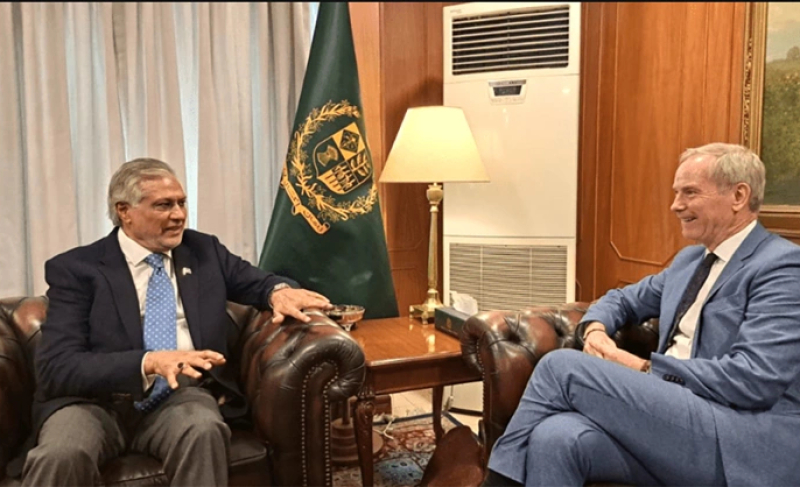
Pakistan's preferential trade status could be at risk if it fails to address human rights issues, including controversial blasphemy laws, forced marriages and conversions of religious minority girls, and freedom of religion, according to a European Union (EU) delegation.
The delegation, led by EU Special Representative on Human Rights Olof Skoog, issued a warning in a press statement on Friday, indicating that Pakistan should not take its Generalized Scheme of Preferences Plus (GSP+) status for granted. The EU delegation highlighted that Pakistan's trade benefits are contingent upon the progress made in confronting human rights issues, including freedom of expression.
“As we approach the midterm of the current monitoring cycle, we encourage Pakistan to continue on its reform path as it prepares for reapplication under the upcoming new GSP+ regulation,” the EU delegation stated. They emphasized that “the trade benefits under GSP+ depend on the progress made on addressing a list of issues, including on human rights, and tangible reforms remain essential.”
The delegation acknowledged Pakistan as a key partner for the EU in South Asia and noted that their relationship is built on shared values of democracy, human rights, and the rule of law, adhering to the principles of the U.N. Charter and international norms.
The EU is Pakistan's second-largest trading partner, with GSP+ status allowing the country to enjoy duty-free or minimal duty on exports to Europe. However, this scheme is contingent upon beneficiary countries showing tangible progress in implementing 27 international conventions related to human and labor rights, environmental protection, climate change, and good governance.
During their week-long visit to Pakistan, which precedes an important GSP+ monitoring mission in June, the EU mission aimed to engage with Pakistani officials on urgent human rights and labor rights issues. The delegation met with senior officials, including Deputy Prime Minister and Foreign Minister Ishaq Dar, Chief of Army Staff Gen. Asim Munir, Minister of Law, Justice and Human Rights Azam Nazeer Tarar, Federal Minister of Commerce Jam Kamal, and Foreign Secretary Amna Baloch.
In these discussions, Skoog focused on several critical issues, including the application of blasphemy laws, women’s rights, forced marriages and conversions, enforced disappearances, freedoms of expression, religion or belief, media independence, impunity for rights violations, due process, the right to a fair trial, civic space, and the death penalty.
During a meeting with Chief Justice of Pakistan Yahya Afridi, the focus shifted to the judicial backlog and the integrity and independence of the judiciary. Throughout Skoog's visit, he acknowledged the significant role of the National Commission of Human Rights (NCHR) and emphasized the need to preserve its independence.
“In the context of the upcoming GSP+ monitoring mission, the special envoy encouraged Pakistani authorities to ensure the implementation of all relevant international conventions,” the EU delegation stated.
Skoog also visited Lahore to meet with Punjab Chief Minister Maryam Nawaz Sharif and the Minister for Minorities Affairs in Punjab, Sardar Ramesh Singh Arora, along with representatives from the Christian and Ahmadi communities. Discussions during these meetings focused on freedom of religion or belief, the protection of minority rights, and accountability for human rights violations.
Pakistan was granted GSP+ status on January 1, 2014, after ratifying 27 international conventions and committing to their implementation.

















